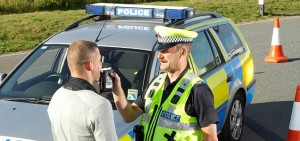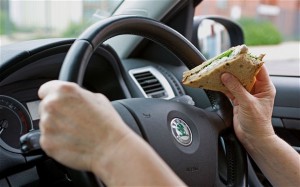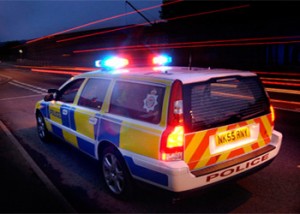Motoring Solicitor – Common Motoring Offences in the UK
General practice lawyers who deal with all areas of criminal law won’t always know the intricate legal arguments (unlike a specialist motoring solicitor) that can be used successfully by an expert road traffic lawyer to protect your licence if you have been accused of any of the common UK motoring offences below;
Failing to provide driver information
When you commit a motoring offence, you will receive an section 172 information request. If you do not complete and return the request, you face six penalty points.
You have 2 possible defence options, S172(4) and S172(7)(b) Road Traffic Act 1988.
Your motoring solicitor can help you to defend this allegation if you either didn’t receive the request to do so, or you used reasonable diligence to pin point who was driving but were unable to do so.
Valid Car Insurance Motoring Offences
If you are stopped by the police while driving without car insurance, your circumstances for doing so are not considered relevant and you are considered guilty of the offence.
Pleading guilty to driving without having valid motor insurance in place, or being convicted of the offence will earn you 6 – 8 points on your licence.
Sometimes a motor insurance policy will have been cancelled without the driver being notified.
If you genuinely and honestly believed that you were properly insured and can demonstrate that to the court then you can use a special reasons argument.
Speeding – Points, Fines and Disqualifications
If convicted of a speed related motoring offence you will receive 3 to 6 points on your licence, a possible driving ban depending on the severity of your offence, as well as costs and a fine.
Expert testimony is increasingly important following recent UK motoring case law if you want to successfully defend your speeding allegations.
In many instances, motorists caught speeding on several occasions face totting up bans for accumulating 12 points or more on their licence. In these instances, 12 points on your licence doesn’t automatically mean that you face a driving ban.
Ask experienced driving solicitors pattersonlaw.co.uk to prepare an exceptional hardship defence for you and you may well be able to retain your driving licence.
Drinking and Driving
The legal UK drink drive breath reading limit is 35mg. You will be banned from the road for a minimum of one year if convicted of drinking and driving.
The three defences for drink drive are that you were not the driver of the car, you were not driving in a public place, or that you didn’t consume any alcohol until after you had finished driving.
It’s also possible to avoid a ban if your motoring solicitor can demonstrate to the court you unwittingly consumed alcohol that took you over the permitted limit, you drove a short distance or it was a genuine emergency situation.
Drunk in Charge Related Offences
In court, it is necessary for the prosecution to demonstrate that you were over the drinking and driving legal limit, and that you were also in charge of the motor vehicle too.
You have a defence if you can show you were not intending to drive until you were under the legal limit.
If you are proven guilty of this offence, you will receive a mandatory 10 points and a possible discretionary ban.
Driving with a Mobile Phone
A mobile phone driving offence is deemed to have been committed if you are holding & using the mobile phone while driving.
Lots of Magistrates have many different opinions regarding mobile related offences and the law.
Regardless of whether you are stuck in traffic, stopped at traffic signals or in a temporary jam, it is still an offence to hold a phone while talking on it.
Without Due Care
Without due care requires the prosecution to prove to the court beyond any reasonable doubt that your driving standard fell below the level normally expected of a competent and careful driver.
Road traffic offences covered include undertaking on motorways and low speed knocks.
In some instances the police have the discretion to offer you a Driving Improvement Course as an alternative to attending Court.
Fail to Stop
Any driver involved in an accident has a duty to stop and provide your details in accordance with S 170 Road Traffic Act 1988 if either; property, another vehicle or a person was damaged or injured.
You have up to twenty four hours to report an accident to a police officer if it wasn’t practicable to exchange details at the time of the incident.
This offence carries 5 to 10 points on your driving licence or a discretionary ban.
It is possible to successfully defend this allegation if you were unaware that you had caused damage and can demonstrate that it would be reasonable for you to be unaware that you had been a party to an accident.
Because these are both considered to be very serious offences, you can be sentenced to community service or even receive a prison sentence.
Dangerous Driving Motoring Offences
To be convicted for dangerous driving, the quality of your driving must fall far below what is required, but in addition it should be obvious to a careful and competent driver that the driving is dangerous.
If convicted of dangerous driving, you face a minimum 1 year driving licence disqualification, a complete driving re-test and even a prison term.
No Licence Offences
Much confusion surrounds this driving offence.
This offence depends on the conditions of your current driving licence, for example, if you have never passed a driving test and are not displaying L plates then the offence is endorsable.
Motoring Solicitor Advice
If the DVLA instructed you to return your driving licence to them and they suspend your driving entitlement, the offence is non-endorsable.
Many people believe incorrectly that ‘no licence’ means that your car insurance policy is rendered invalid, but that is not true.
Only a good motoring solicitor will be able to successfully guide the Court as to whether your specific motoring offence carries driving licence penalty points or not. Many Courts are not clear about this issue with no licence offences.







